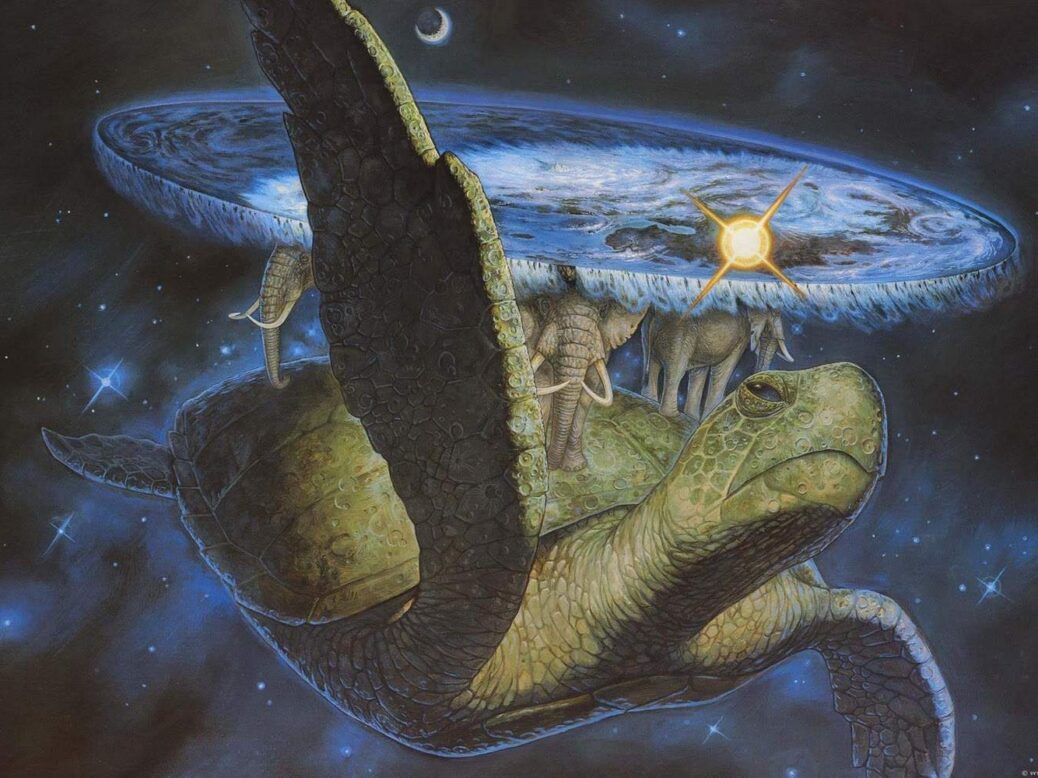
“He is, of course, writing about us,” A S Byatt observed of Terry Pratchett. “He is good at policemen, businessmen, fraudsters, murderers, banks and shares, and at music with rocks in it besides, as well as at goblins, witches, dragons, trolls and dwarfs.”
One of the commonest misconceptions about Pratchett’s books is that their fantasy setting somehow divorces them from the real world and its concerns. But as the Discworld series developed, its themes became increasingly political (with both a big and a small “p”). Take Feet of Clay (1996), possibly my favourite in the series. It is an interrogation of power as an ancient vampire herald called Dragon, King of Arms searches obsessively for the “true ruler” of the city-state of Ankh-Morpork –while Captain Carrot, the only living descendant of the last monarch, steadfastly refuses to acknowledge that he is the heir, preferring to serve in the City Watch. (His boss Samuel Vimes, incidentally, is a descendant of the last man to kill a king of Ankh-Morpork.) Vimes’s hatred of authority prompts the Machiavellian Patrician to keep giving him aristocratic titles just to annoy him.
Set against this is another plot strand: the desperate attempts by the Golems (creatures formed from clay and kept as slaves by human beings) to make themselves a king. The Golems are given life by the sacred words in their heads, but they fill their king’s mind with so many hopes and obsessions and aspirations that he is driven mad. You might not notice all this on a first reading – you’ll be too busy laughing about a bull that thinks it’s two bulls because each of its eyes has a different field of vision – but it’s in there.
Similarly, Going Postal is about capitalism. It tells the story of a notorious conman given a second chance if he promises to revive the Post Office. This is a shambolic bureaucracy, but one that offers steady jobs to the old and the slightly simple – unlike the rival “clacks”, a semaphore system where equipment is run into the ground and profit is put before the workers’ safety.
In among the sweeping themes are pointed vignettes: in Small Gods (1992), it turns out that only one person sincerely believes in the state religion, despite its enthusiastic enforcement by an inquisition. (This being Pratchett, a deity’s corporeal manifestation is in direct proportion to the strength of belief, resulting in the god Om taking the form of a one-eyed tortoise.)
In Jingo (1997), a new island appears in the sea between Ankh-Morpork and the nearby state of Klatch, prompting both to prepare for war – and culminating in Vimes trying to arrest both armies for a “breach of the peace”. In the earlier Equal Rites, a girl discovers that she’s a wizard, rather than a witch, and tries to enrol at the men-only Unseen University (an eccentric organisation that will be familiar to anyone who has spent time in academia).
The moral cores of the series are Vimes and the witch Granny Weatherwax, characters to whom Pratchett has returned again and again. Both are feared –Weatherwax’s nickname from the trolls is “She Who Must Be Avoided” and to the dwarves she is “Go Around the Other Side of the Mountain” – but they are also unbending in their principles, fiercely loyal and protective, and unafraid to take the right decision even if it is hard and unpopular. As Death – another recurring character – says in Reaper Man (1991): “There’s no justice. There’s just us.”
Read Laurie Penny’s interview with Terry Pratchett and the New Statesman leader “Facing Death (and Binky)” about the significance and afterlife of his work.





